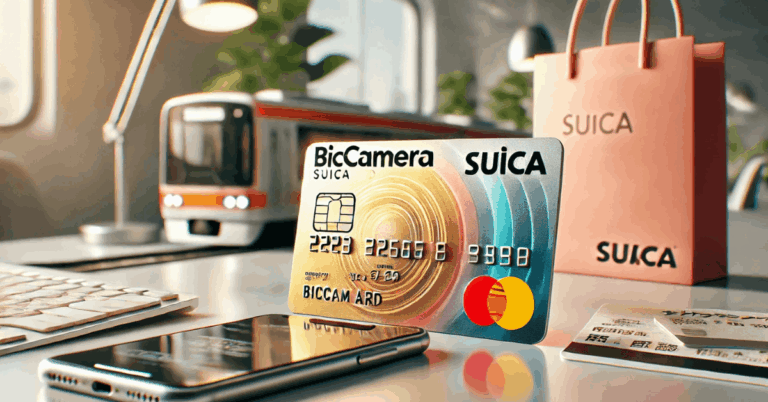Dental implants offer a permanent solution for seniors looking to replace removable dentures. These implants improve chewing, speaking, and overall oral health by replacing teeth lost to decay or injury.
Unlike dentures, dental implants don’t require adhesives or soaking.
Affordable Dentures & Implants provides these low-cost, effective treatments to seniors worldwide, ensuring a natural and lasting smile.
Dental Implants Overview
Dental implants act as artificial tooth roots embedded directly into the jawbone to replace missing teeth.
They are designed to mimic the appearance and function of natural teeth. These implants are an excellent option for individuals, especially seniors, looking for solutions for:
- Missing teeth due to various reasons
- Teeth recently extracted
- Teeth severely damaged from injuries or accidents
- Teeth too decayed for root canal success
Parts of Dental Implants
Dental implants consist of three components: a titanium post, an abutment, and a prosthetic tooth. The titanium post serves as a root, firmly anchored in the jawbone, providing the necessary stability.
Attached to this post, the abutment holds the prosthetic tooth, which is tailored to blend seamlessly with the surrounding natural teeth.
This combination ensures a robust foundation that supports chewing and speaking activities crucial for seniors around the world, catering to their specific needs at any age.
Types of Dental Implants for Seniors
Seniors have two primary dental implant options:
- Endosteal Implants: These are the most widely used dental implants, inserted directly into the jawbone. They come in various forms such as screws, cylinders, or blades.
- Subperiosteal Implants: These implants rest on top of the jawbone but underneath the gum. They are ideal for seniors who cannot use standard dentures or those with minimal bone height.
Both types of implants provide seniors across the globe with improved oral health and a better quality of life, making dental care accessible to everyone.
Dental Implant Pricing
A single dental implant typically costs around $4,800. This amount can vary, with a general range of $3,500 to $6,700, influenced by the dentist’s location and expertise.
Included in this price are three key components: the implant itself, which serves as the new tooth root; the abutment, which is the support structure; and the crown, the visible part that looks like a natural tooth.
If additional bone grafting is needed, expect to pay more.
Variables Affecting Implant Expenses
Knowing what factors influence the cost of dental implants aids in budget planning.
Material Quality and Implant Design
The cost of an implant is determined by the materials used and its design. Premium materials bring longevity and optimal function, though personalized designs might increase the price.
Expertise and Geographic Location of Dentist
The skill level of the dentist and their practice location are significant price factors. More experienced dentists typically charge higher fees. Prices also differ from one region to another.
Procedures Before Implantation
Costs may increase due to necessary preliminary steps like tooth extractions and bone grafts. The complexity of these procedures can significantly affect the final costs.
Long-Term Care and Implant Maintenance
Sustained care is crucial for the durability of dental implants. Routine visits for checks and cleanings are part of the overall costs, but they are vital for maintaining implant effectiveness.
For seniors and individuals looking for cost-effective dental implants, considering these aspects can help manage expenses and achieve desired results.
Full Set of Dental Implants: Cost
For seniors looking at dental implants, understanding costs is crucial. A full mouth set, often referred to as all-on-4, usually costs around $43,000, with prices potentially going as high as $56,000.
This setup uses four implants to hold a complete set of teeth, offering a cost-effective alternative to individual tooth replacement.
Here’s a breakdown of what one might expect to pay additionally:
- Oral evaluation typically costs about $100, though it could range from $50 to $200.
- X-rays might set you back around $130, with a usual range of $100 to $250.
- A bone graft, if needed, costs approximately $650, though prices can vary from $350 to $1,000.
- Tooth extractions are priced around $300, but can be anywhere between $200 and $700.
For seniors looking for budget-friendly solutions, it’s advisable to compare prices from different providers and consider various countries that offer competitive rates for dental care.
This approach can lead to substantial savings while accessing necessary treatments.
5 Strategies to Secure Low-Cost Dental Implants for Seniors
Securing affordable dental implants can be a challenge, especially for seniors managing their finances. Below are five practical strategies to obtain dental implants that are economically suitable for seniors across the globe.
Dental Discount Plans for Implants
Dental discount plans are an excellent way to cut down costs on dental implants. These plans offer:
- No annual spending limit — You can receive discounts on necessary treatments without a cap.
- Annual membership fee — This grants you access to a network of dentists who provide services at reduced rates.
- No approvals or claim forms — Use your ID card at the dentist to save money.
DentalPlans, for example, offers 20 to 50 percent savings on dental care expenses and has no yearly limits, providing ongoing savings for a minimal annual fee.
ClearChoice Dental Implants for Seniors
ClearChoice centers are known for their expertise in same-day dental implant services.
They offer a flat fee for comprehensive services, including removing teeth and adding implants, with prices for All-on-4 implants typically ranging from $35,000 to $55,000.
Affordable Payment Plans for Dental Implants
Many dental practitioners offer payment plans, allowing you to pay for implants over time without insurance. This direct arrangement with your dentist can ease the financial burden.
Cosmetic Dentistry Grants for Seniors
The Cosmetic Dentistry Grants program, a nonprofit initiative, sometimes provides implants at no cost to seniors, making it a crucial aid for those needing financial assistance.
Discounted Services at Dental Schools
Dental schools around the world often offer reduced rates for services, including implants.
Treatments are performed by dental students under professional supervision, ensuring high standards while being cost-effective. These programs frequently offer significant savings on various treatments.
Pros and Cons of Dental Implants for Seniors
Dental implants are a cost-effective choice for seniors across the globe. They help reduce the money you spend out of pocket. They also allow for the early detection of oral diseases, which can boost your overall health.
Many insurance providers have plans that help manage costs. Typically, a plan might fully cover preventive treatments, handle 80 percent of basic procedures, and take care of 50 percent of the cost for dental implants.
Despite the benefits, dental implants can be a financial stretch for some seniors. If insurance isn’t an option, there are ways to secure dental implants at a lower cost available to everyone, anywhere.
Low-Cost Dental Implants for Seniors
While dental implants offer a permanent solution for tooth loss, their high cost can deter many, especially seniors. However, there are cost-effective alternatives available that ensure dental health doesn’t take a backseat due to budget concerns.
- Dental Bridges: An affordable option for seniors, dental bridges use adjacent teeth as anchors to hold artificial teeth, filling the gaps efficiently without the need for extensive surgeries like those required for implants.
- Complete Dentures: Seniors needing to replace a full set of teeth might find complete dentures to be a viable option. These come in both removable and fixed varieties, with the removable types being particularly budget-friendly as they don’t require surgical implant supports.
- Partial Dentures: For those who don’t need a full set of artificial teeth, partial dentures provide a flexible and economical solution. They are available in both removable and fixed types, allowing customization based on financial ability and personal preference.
For seniors worldwide, these alternatives to dental implants present an opportunity to maintain dental functionality and appearance without the financial strain of traditional implants.
This makes dental care accessible to everyone, regardless of budget constraints.
Summary
Dental implants are a substantial investment, often costing up to $4,800 for one and about $56,000 for a full set in the U.S. However, seniors have multiple ways to cut these costs.
Options include grants and discounted treatments at dental schools. Dental professionals worldwide also provide payment plans to ease the financial burden.
Another effective strategy is seeking dental services internationally, where several countries offer high-quality care at reduced prices, making it accessible for everyone.












